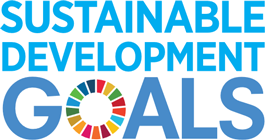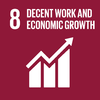Decent Work and Economic Growth
Summary of Discussion
Q8: Changes needed in the labour market
- Need for collaboration between stakeholders
- Access to decent education
- More focus and investment in vocational skills and digital skills in emerging economies especially
- Living wage
- Strengthening worker voice + protections
- Shift from thinking of jobs to tasks
- Worker-centric, meaningful work = decent work
- Challenging the concept of economic growth
Policy/regulatory needs:
- Flexible regulatory systems
- Strong equality and human rights legislation
Final poll result
Looks like most of us agree that we need to provide youth with accurate information about pay, lifestyle and future job availability for skilled trades workers
Q7: Equal access to work + preparation for change
Ideas to move to more equality:
- diversity in leadership
- equal pay policies
- ensuring basic skills in STEM and IT skills
- early investnment incubators/ accelerators as job creators to invest in talent
- building close-knit communities to see outcomes and value of work
- businesses should take more responsibility to integrate people, inc in supply chain
Q6: Vocational skills
Vocational skills highly valued across the world from India to the US
- Need for more investment and policies focussed on VET and lifelong learning
- Should we be distinguishing between types of skills?
- Barriers currently preventing women from attaining vocational skills
- Examples of SkillsUSA and Worldskills - promoting careers opps that don't require a degree
Q5: Role of dif stakeholders
Need for close collaboration and longer term partnership between "world of work" and "world of education", as well as policy-makers. NGOs can also play a role in partnerships
Latest poll result
Clearly points to risks facing manufacturing workforce around the world
Q4: Jobs of tomorrow
Difficult to predict. WEF: 65% of children entering primary school today will end up working in jobs that don’t yet exist
- combining skills likely to increase in importance
- digital capabilities increasingly important
- more sustainability, circular jobs and SDG jobs
- but consumerism still high so consumer goods + agri still important
- partnership skills may become an important career path
- mentoring more important
- but despite the change a comment that the nature of coming toether to work will always be part of the human condition
Q3: Skills gap - how to help workers thrive
Key theme so far is partnership and collaboration between educators, employers and policy-makers
- Collaboration with Gov to identify emerging skills gaps
- Education system must prepare students with future-relevant skills
- Requires collaboration with employers
- Apprenticeships can be win-win
- Training and education on the job
- Blending the school to work transition
- Companies should also look into supply chains and invest in capacity building among suppliers
- Universities using more "authentic assessment" strategies - real life scenarios and assignments
Poll questions so far
Both sets of results point to the importance of reducing inequality and ensuring access to education
Q2. Rapid business change + implications for employers/employees
TECH: IoT, Industry 4.0, automation, data and analytics > reshaping how work is done and replacing jobs with automation
- Creates need for upskilling and reskilling and lifelong learning
- Transformation of HR processes required - to focus on employability
- Need to ensure resiliency of workers
- Hyper-specialization - uncertain impacts
NEW FORMS OF CAPITAL:
- Redefining products/services to lessen negative impacts
- Again, needs upskilling and/or reallocation of workforce
CHANGING FORMAT OF "WORK":
- Gig economy will continue to change things
- Definition of a "good job" will shift
- Are essential freelancers employees? = blurring of firm boundaries
Q1. Factors inhibiting decent work/growth
Ideas mentioned so far:
- persistent unemployment (inc youth)
- weak/unstable growth, low productivity
- high levels of informality, changing format of jobs (knowledge economy creating waves, sharing economy etc.)
- poverty, health and human rights challenges
- demographic changes – aging population
- tech evolutions
- working conditions (safety, precariousness, instability, low income, etc);
- low quality education systems, lack of education investment
- corruption, poor governance by public sector
Meet our Special Guests
3M
CSR Europe
World Bank Group
International Organization …
Net Impact
BSR
University of Waterloo
OECD
Kaiser Aluminum
United Nations Development …
Session Moderator
Canada




Posts
Back to Top